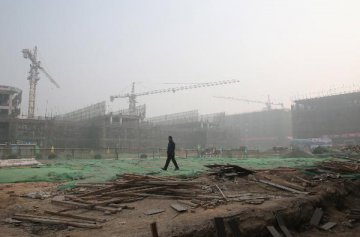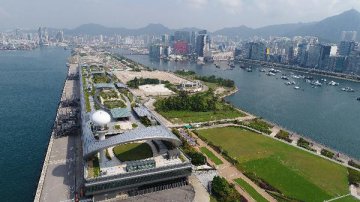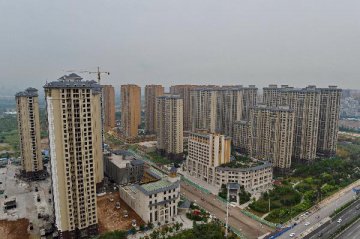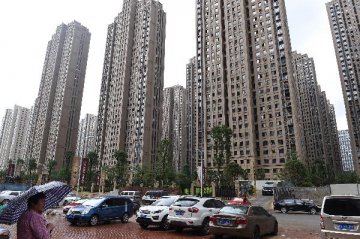
News that some local governments have eased restrictions on housing sales hit the headlines this week, but the move received a lukewarm response from A-share investors.
The sub-index tracking the nation's property sector lead the slump in A shares on Friday, extending this week's loss to 4.31 percent, according to financial information provider Wind Info.
The relaxation of property sales restrictions in Guangzhou, Guangdong province and Heze, Shandong province this week did not improve investor sentiment, as there has been no news of major changes to the central government's policy stance, analysts said.
Guangzhou, a first-tier city and capital of Guangdong, now allows local individuals to buy new commercial apartments and commercial stores that previously could only be sold to incorporated companies. The change came into effect on Thursday.
Those new commercial apartments and stores can be traded in the local real estate markets after the individuals have owned them for more than two years, according to a document released by the Guangzhou Housing and Urban-Rural Construction Committee late on Wednesday.
In March of 2017, the committee issued a notice banning local individuals from buying newly built commercial apartments and stores in the city to curb real estate speculation.
But, the ban saw a citywide slump in sales of new commercial apartments and stores, with sales volumes falling sharply. Only 19,447 new commercial apartments changed hands in 2017, a year-on-year reduction of 43 percent, according to official data.
Deng Haozhi, a local property analyst, said the previous ban was too strict and is no longer in line with developments in the real estate market.
"The relaxation of the sales ban will be very good news for the property market and will spur sales of Guangzhou's new commercial apartments and stores, revitalizing a large number of commercial apartment projects that meet the relaxation requirements in the coming months," Deng told local media.
Dick Li, general manager of the research and development department at Guangdong Centaline Property Agency Ltd, said property sales, particularly for commercial and service properties, will rise in the near future.
"Rising prices for high-quality commercial flats and stores in busy areas cannot be ruled out," he told China Daily.
But Li added that the conditions are not right for many properties in Guangzhou to see price increases, as many local developers are prioritizing destocking, driving a rise in supply.
According to official data, Guangzhou had an inventory of 28,136 commercial apartments and construction floor space of more than 1.6 million squares meters at the end of last month, up 47.17 percent year-on-year.
Guangzhou is the second city in the mainland to relax its home sales curbs, after Heze in East China's Shandong.
Heze's local government announced on Tuesday it had canceled the residential property resale ban that was introduced last year, in order to promote the healthy and stable development of the local real estate market.
According to the previous rule, local residents could only resell their property after two years, while a limit of three years was imposed on non-local purchasers.
But, "the eased restrictions in these two cities do not show a significant, nationwide policy change," said a property stock analyst who declined to be named.
"During the current market downturn, investors will not jump at such a blurry signal of policy changes. Investors are still waiting to hear top regulators' policy stances," he added.
























Latest comments